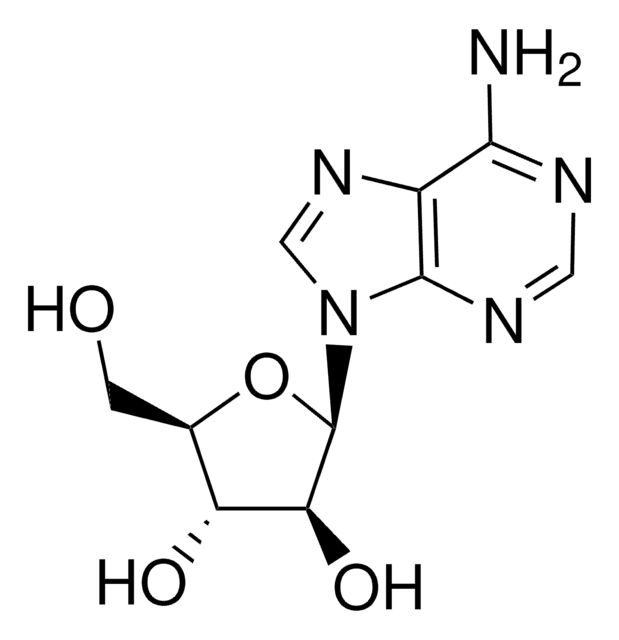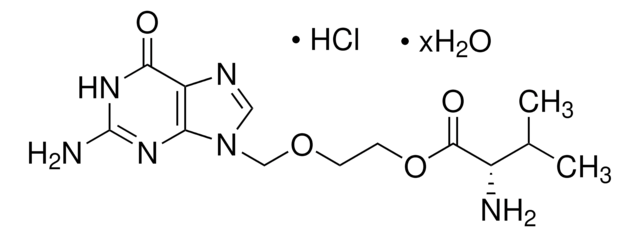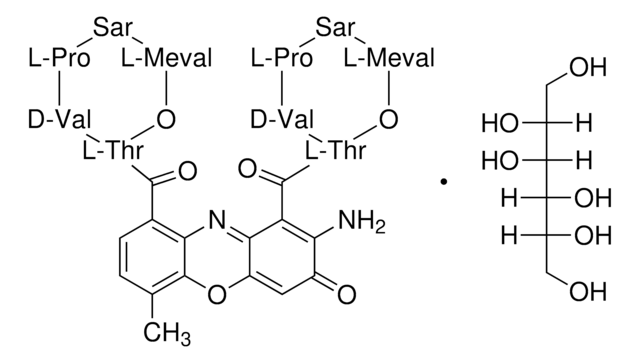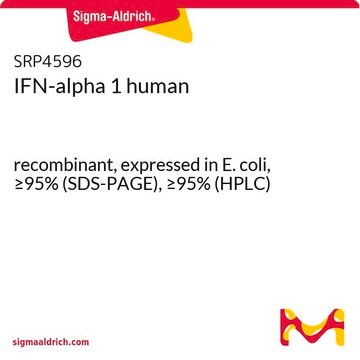A4669
Acycloguanosine
≥99% (HPLC), powder
Synonym(s):
9-[(2-Hydroxyethoxy)methyl]guanine, Acyclovir
About This Item
Recommended Products
Quality Level
Assay
≥99% (HPLC)
form
powder
color
white
solubility
H2O: 0.7 mg/mL
1 M HCl: 50 mg/mL
DMSO: 7 mg/mL
ε (extinction coefficient)
11.8 at 256 nm at 1 mM
antibiotic activity spectrum
viruses
Mode of action
DNA synthesis | interferes
originator
GlaxoSmithKline
SMILES string
NC1=Nc2c(ncn2COCCO)C(=O)N1
InChI
1S/C8H11N5O3/c9-8-11-6-5(7(15)12-8)10-3-13(6)4-16-2-1-14/h3,14H,1-2,4H2,(H3,9,11,12,15)
InChI key
MKUXAQIIEYXACX-UHFFFAOYSA-N
Gene Information
human ... HV1S(3365) , NP(4860)
Looking for similar products? Visit Product Comparison Guide
General description
Application
- to serve as a positive control to compare the antiviral activities of mushroom extracts in cytotoxic assays using Vero cells
- in infection studies to test its effect on voltage-gated sodium channels (VGSC) using human dorsal root ganglion-derived neuronal (HD10.6) cells
- to test its effect on the interferon-stimulated gene (ISG) expression induction (Mx1 and ISG15) in human foreskin fibroblast cells
Biochem/physiol Actions
Features and Benefits
Storage Class Code
11 - Combustible Solids
WGK
WGK 2
Flash Point(F)
Not applicable
Flash Point(C)
Not applicable
Personal Protective Equipment
Certificates of Analysis (COA)
Search for Certificates of Analysis (COA) by entering the products Lot/Batch Number. Lot and Batch Numbers can be found on a product’s label following the words ‘Lot’ or ‘Batch’.
Already Own This Product?
Find documentation for the products that you have recently purchased in the Document Library.
Customers Also Viewed
Articles
Bioactive small molecules for immune system signaling target identification/validation and antibiotics, antivirals, and antifungals offered.
Discover Bioactive Small Molecules for ADME/Tox
Discover Bioactive Small Molecules for ADME/Tox
Discover Bioactive Small Molecules for ADME/Tox
Our team of scientists has experience in all areas of research including Life Science, Material Science, Chemical Synthesis, Chromatography, Analytical and many others.
Contact Technical Service










